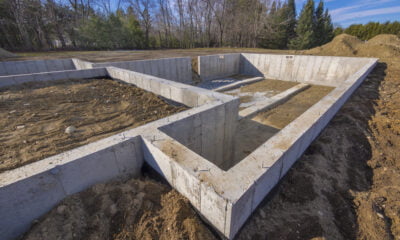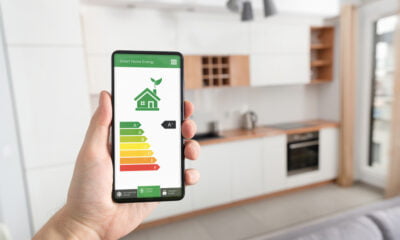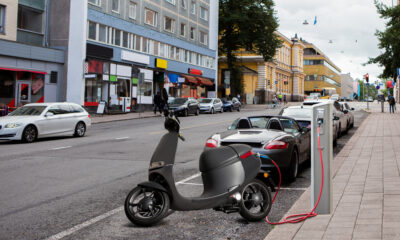

Energy
How to Reduce Your Home’s Carbon Footprint
There has been much discussion in recent years of an even greater push towards saving energy and reducing your carbon footprint. Once you start hearing about the numbers associated with increased greenhouse gases and how they likely affect climate change, it’s easy to feel defeated and think there is nothing you can do to help. How can small reductions in energy use you make around the house even equate to a drop in the bucket when massive corporations are sending so much methane and chlorofluorocarbons out into the atmosphere? The truth of the matter is that you have the power to make healthy choices regarding your environmental impact that can go a long way over time.
A Light Bulb Moment
Did you know that if every home in the United States made the switch to compact fluorescent light bulbs, household electric energy costs would be reduced by half? These types of bulbs emit the same amount of light as incandescent bulbs, but only use one third to one fifth the amount of energy. In most cases, you can purchase fluorescent bulbs that will fit right into your incandescent light fixtures. These bulbs also have a much greater lifespan than their incandescent counterparts. A compact fluorescent bulb can last ten to fifteen times longer than traditional bulbs, making them a worthy investment economically as well as environmentally.
Invest in Energy Efficient Appliances
Your refrigerator is probably your least energy efficient appliance. Especially in models built before the 1990s, refrigerators can consume a staggering amount of resources. In 1992, the Environmental Protection Agency (EPA) developed the Energy Star trademark. Purchasing an appliance with this label signifies that it uses at least twenty percent less energy than is required by federal standards. Other tricks in keeping your refrigerator running efficiently include regularly cleaning the coils, keeping it away from heat sources, and keeping it filled to maximum capacity.
Central Air and Heating Units
Your HVAC system can easily be responsible for half of your total energy use, especially in more extreme climates. The best way to reduce the energy used in the house is to make sure your heating and air systems are well maintained. Keeping up with HVAC maintenance and using Energy Star furnaces, boilers and air conditioning units can drastically reduce the amount of energy expended by your home, and have a big impact on your ecological footprint. The only way to truly make sure your units are running up to snuff is to bring in a professional for an annual inspection of your heating and cooling units.
There are myriad ways in which to reduce your carbon footprint that all start at home. Every little bit counts when you are working towards living more efficiently with an eye on environmental consciousness. Taking advantage of new technologies and keeping your house and appliances updated with energy efficient models will help you save natural resources and even cut back on a significant amount of costs in your electricity and water bills. Old light bulbs and appliances can be taken to recycling facilities to be salvaged for parts and turned into new, higher-functioning products. The small adjustments you start making today can go a long way towards saving energy and reducing your carbon footprint.


 Environment12 months ago
Environment12 months agoAre Polymer Banknotes: an Eco-Friendly Trend or a Groundswell?

 Features11 months ago
Features11 months agoEco-Friendly Cryptocurrencies: Sustainable Investment Choices

 Features12 months ago
Features12 months agoEco-Friendly Crypto Traders Must Find the Right Exchange

 Energy11 months ago
Energy11 months agoThe Growing Role of Solar Panels in Ireland’s Energy Future





























